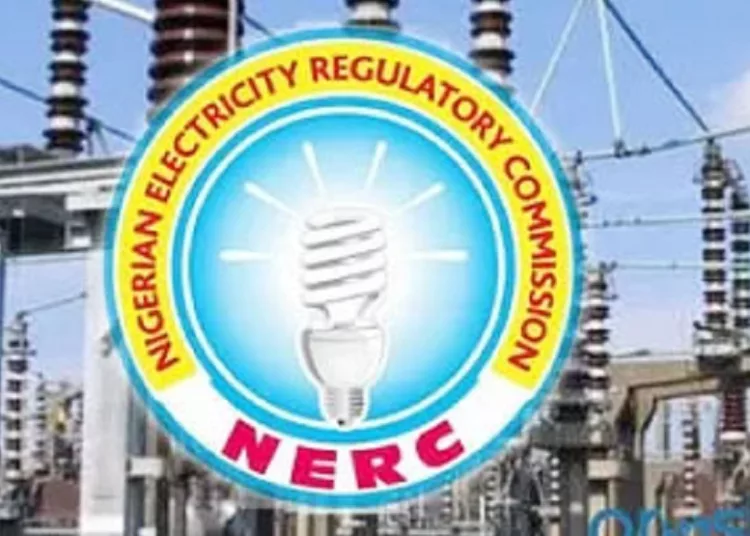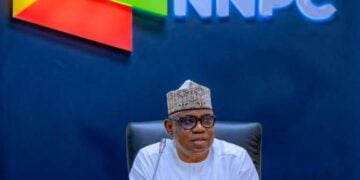Nigerian Electricity Regulatory Commission (NERC) has removed the Nigerian Bulk Electricity Trading Plc (NBET) from power purchase transactions between distribution companies (Discos) and generation companies (Gencos), allowing Discos to buy electricity directly from Gencos.
This directive aims to limit the federal government’s fiscal exposure to market risks by steering the electricity market towards bilateral contracting for energy and capacity between Gencos and Discos.
NERC, in an order dated July 25, 2024, signed by its chairman, Sanusi Garba, and commissioner, Legal, Licensing and Compliance, Dafe Akpeneye, said, “NBET shall forthwith cease to enter into new contracts for the purchase and resale of electricity and ancillary services in Nigerian Electricity Supply Industry (NESI)”.
“NERC has ordered NBET to cease entering into new contracts for the purchase and resale of electricity. Any NBET contracts executed in violation of this order will not be approved by the commission and will be treated as an infraction subject to regulatory sanctions.”
The regulator also intends to foster a more competitive market structure by repositioning NBET from its current role as the sole bulk electricity trader. This move provides an opportunity for Gencos to reduce their contracted capacities with NBET and trade directly with Discos on a bilateral basis.
LEADERSHIP reports that by transitioning the contractual framework for bulk energy trading to “take-or-pay” contracts, NERC aims to increase certainty and market discipline among participants.
The commission has issued trading licences to ten private companies interested in bilateral electricity trading with Discos and eligible customers, indicating significant potential in wholesale electricity trade outside the NBET single-buyer pool.
The commission said any contract executed by NBET in violation of this order shall not be approved by the commission and shall be treated as an infraction that is subject to regulatory sanction.
It has also cut NBET energy trading to five GenCos as other traders emerge.
It said NBET shall, in the interim, continue to administer the fully effective contracts with five Generation Companies (GenCos): Azura Power West Africa Ltd, Omotosho Power Plc, Olorunsogo Power Plc, Nigerian Agip Oil Company Ltd, and Shell Petroleum Development Company of Nigeria Ltd. based on the minimum “take or pay” capacities contained in their respective Power Purchase Agreements (PPAs).
NERC said, the capacity from the five plants shall be vested to Distribution Companies (DisCos) based on the guaranteed share of capacity contained in their respective vesting contracts.
The Electricity Power Sector Reform Act (EPSRA) had created NBET to buy and sell electricity in bulk from power producers. NBET was meant to help with the sector’s financial problems temporarily.
NBET was licensed as a bulk trader by the Commission on August 23, 2011. The licence issued to NBET had a tenure of 10 years and was subject to renewal as may be determined by the Commission.
Following stakeholder engagements on NBET’s continued role in NESI, the Commission renewed the initial 10-year licence issued to NBET upon expiration in August 2021 but for a term of three years, noting that the continued role of the NBET in the market has been a disincentive for the transition to bilateral contracting between Discos and Gencos, thus exposing the federal government to the risk of revenue shortfalls beyond tariff support.
As part of transitioning to medium-term and long-term electricity markets, the EA empowers NERC to instruct NBET to stop entering new contracts for buying and selling of electricity, thus asking NBET to transfer its current contracts to new buyers as the Act specified.
The Commission had, since 2022, issued trading licences to 10 private companies that had indicated interest in trading electricity bilaterally with DisCos and eligible customers.
The interest in electricity trading so far indicates that there is significant potential in the wholesale trade of electricity outside the NBET single buyer pool.
The Commission has further received requests for regulatory approval from some of the aspirational DisCos for the purchase of electricity from parties other than NBET, i.e. directly from the GenCos or through other trading licensees.
On the supply side, the Commission has further received notifications from several GenCos signalling their intention to exercise the partial or full exit rights contained in their PPAs with NBET with a view to contracting for the supply of electricity directly to DisCos, other bulk traders and eligible customers, in furtherance of the provisions of the Act.
According to NERC, the key incentive of GenCos contracting bilaterally for energy and capacity with DisCos is to secure satisfactory off-take commitments backed by some form of payment guarantees, thus enabling more predictability in generation and gas availability.
Following this development, NBET has only one year to exit the Nigerian electricity market.
NBET last week appointed Johnson Akinnawo as the acting managing director/chief executive officer, succeeding Nnaemeka Ewelukwa, whose four-year tenure ended on July 24.
A statement from NBET management noted that the acting managing director was previously the General Manager of Origination, Contract Management, and Administration.
Akinnawo now leads NBET at a time when the company is implementing measures to stabilise the electricity market and address liquidity in the electricity value chain. He is working collaboratively with the regulator, other critical sector participants, and the federal government of Nigeria to ensure the sustained and continuous settlement of all obligations to GenCos, including those from Discos and the government.











